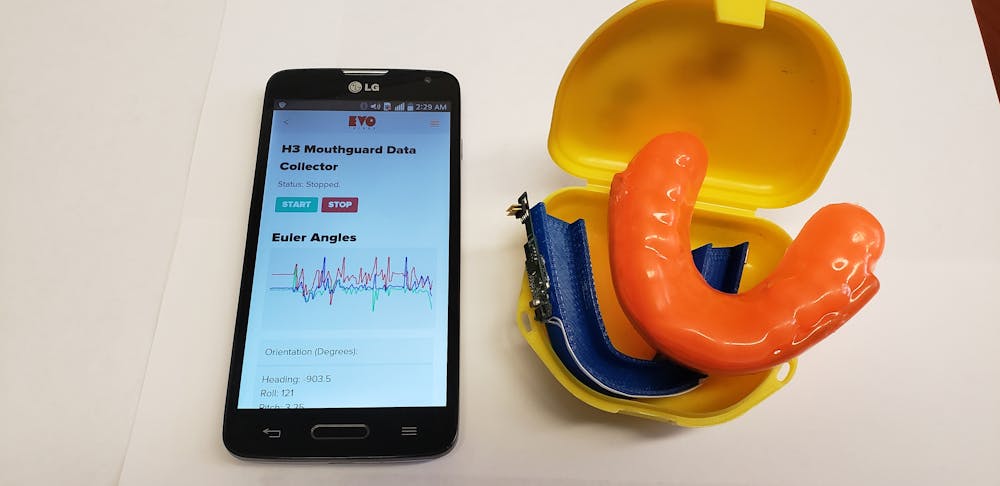Researchers at the UF have developed a wireless mouthguard that measures a person’s health components as they exercise.
The mouthguard, called the H3, is the first oral “internet of things” device. The “internet of things” is how a device can remotely gather data and send them to phones or computers by Bluetooth, said UF associate professor in the Department of Electrical and Computer Engineering and H3 developer Yong Ku “Y.K.” Yoon.
Yoon said he decided to name it H3 after the three aspects of the body it measures: head, heart and heat. Specifically, the H3 detects things like bodily impacts, movement, pulse and body temperature.
“This sports mouthguard will give you the automatic detection and feedback that will tell you if you need to take a rest or drink Gatorade,” Yoon said.
The H3 was made by inserting a chip in an athletic mouthguard. Yoon said it has 11 sensors, an accelerometer, a heart rate monitor and gyroscope.
“It’s really all-encompassing,” said UF doctoral student in the Department of Electrical and Computer Engineering and H3 developer Todd Schumann. But, he said, “there’s room for (the H3) to evolve.”
Yoon and Schumann said the H3 is a prototype that took more than six months to develop. Schumann said they’ve only completed personal testing like wearing it while running on a treadmill. They are looking for an opportunity to do testing on a larger scale, like in UF sports.
They plan on releasing the H3 to the public around one year from now, selling a generic model for $500-$700 and selling custom-fit models for a higher price.
Yoon plans on evolving the H3 to be more user-friendly with more features. He hopes to make it small enough to fit on a single tooth and add a body fluid sensor with the potential to detect diseases like HIV and monitor blood sugar.
Schumann said his main goal is to have people who don’t have access to professionals use the H3.
“(Non-professional athletes) traditionally don’t have all the trainers sitting around watching their every move,” Schumann said. “This would be a device that helps them keep a look on their health while exercising.”
Follow Dana Cassidy on Twitter @danacassidy_ and contact her at dcassidy@alligator.org.
H3 testing app (left) with a prototype of the device (right).






